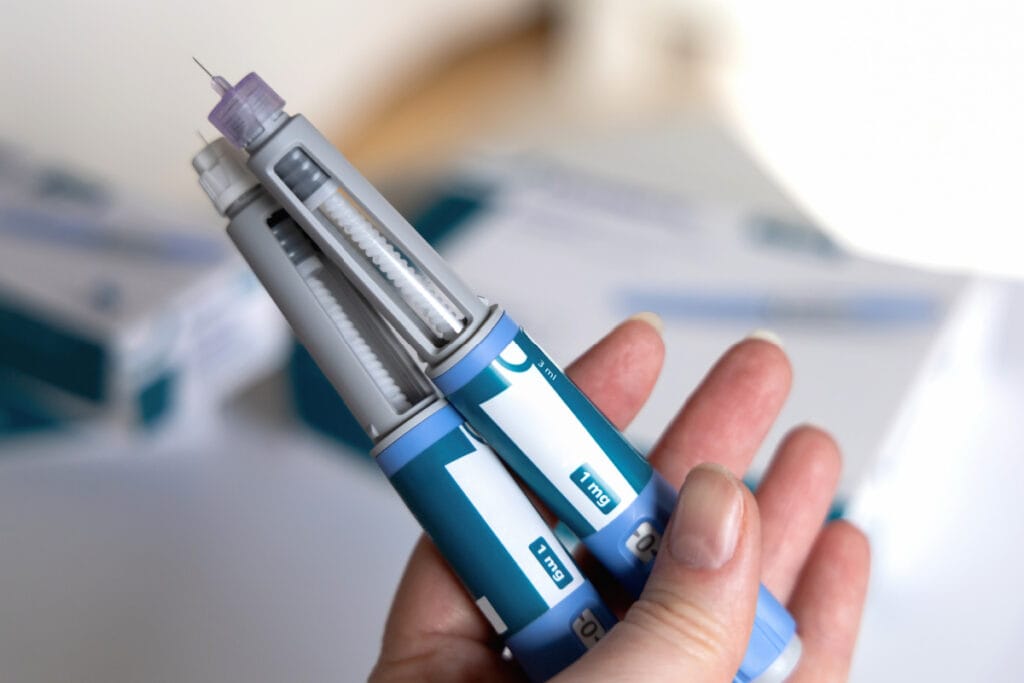What Patients Need to Know About the GLP-1 FDA Policy Changes
| ABCS
Medications such as semaglutide (Ozempic®, Wegovy®) and tirzepatide (Mounjaro®, Zepbound™) belong to a class called glucagon-like peptide-1 (GLP-1) receptor agonists. Originally FDA-approved for type 2 diabetes, several now carry indications for weight management and cardiovascular risk reduction.
Explosive demand, and the resulting shortage of the drugs, led the FDA to allow compounding pharmacies to make and sell semaglutide and tirzepatide, which were then sold at a discounted rate, for the past several years. However, the organization recently declared that the shortage has been resolved and compounding is no longer permitted. Instead, patients will need to fill prescriptions with the name-brand medications from a state-licensed pharmacy.
Here is how the 2025 changes are most likely to affect those looking to use these weight loss medications.
FDA Announcements You Should Know About
| Key change | What it means for patients |
| Drug shortage designations lifted •Tirzepatide shortage resolved → 10/2/2024 • Semaglutide shortage resolved → 2/21/2025 | Because the shortages are over, the FDA’s temporary “enforcement discretion” for compounders is ending. Compounded versions (copies of the brand-name drugs) must stop: 503A pharmacies by April 22, 2025, and 503B outsourcing facilities by May 22, 2025. |
| Crackdown on unsafe or mislabeled GLP-1 products | The FDA sent warnings to sellers for illegally marketing unapproved, untested salt forms of semaglutide and tirzepatide (and retatrutide, which is not a component of any FDA-approved medication) for “research purposes.” |
| Alerts on compounded dosing errors | The agency linked several hospitalizations to patients mis-measuring doses drawn from vials. If you have been using a compounded product, verify your dose and discuss switching to an FDA-approved “pen” with your prescriber. |
So can I still get semaglutide or tirzepatide from a compounding pharmacy?
No. All compounded semaglutide and tirzepatide will be unavailable by May 22, 2025. If you rely on lower-cost compounded GLP-1 injections, plan now with your physician for a transition to an approved product, and be sure to avoid unapproved products or those marketed “for research purposes.”

Will my insurance pay for name-brand GLP-1s?
Coverage for GLP-1 medications for obesity is expanding, but remains patchy. Before filling a prescription, get in touch with your insurer (whether private, Medicaid, or Medicare) to learn if it could be covered for you.
There may be requirements to fulfill before your insurance will cover your medication. For example, carriers may require the presence of a certain BMI and/or a weight-related condition, and may not offer coverage until other treatment modalities have been excluded. Ask if you will need prior authorization, and what is required for the medication to be covered.
Further, if you are planning to work with a cosmetic surgeon or doctor who does not traditionally accept insurance for most procedures, talk with their office to learn if they are able to accept insurance coverage for your weight loss injection treatment plan.
Patient Safety Checklist: How to Protect Yourself
- Verify the source. Only FDA-approved products, clearly labeled and supplied pre-filled pens (not loose-powder “research” vials), guarantee purity and correct dosing.
- Understand the label. Weight-loss doses are higher than diabetes doses; titrate exactly as instructed and talk with your doctor promptly if any questions arise.
- Monitor side effects. Report persistent nausea, abdominal pain, or mood changes ASAP.
- Plan long-term. Stopping GLP-1 therapy often leads to weight regain, so your provider should discuss maintenance strategies with you early. Nutrition is important when consuming a reduced-calorie diet, so starting the medication is an ideal time to make lifestyle changes that you can stick with for years to come.
- Consult board-certified experts. If you are pursuing weight loss in order to prepare for cosmetic surgery, or if you expect to require post-weight loss body contouring (excess skin removal), look for a cosmetic surgeon certified by the American Board of Cosmetic Surgery (ABCS) who specializes in this type of surgical procedure. Your surgeon can coordinate with your primary care team to support your safety and aesthetic goals.
If you’re considering GLP-1 therapy in conjunction with a cosmetic procedure, find an ABCS-certified surgeon near you. Our surgeons are thoroughly vetted, so you can rely on their commitment to evidence-based care and patient safety in every step of your journey.
